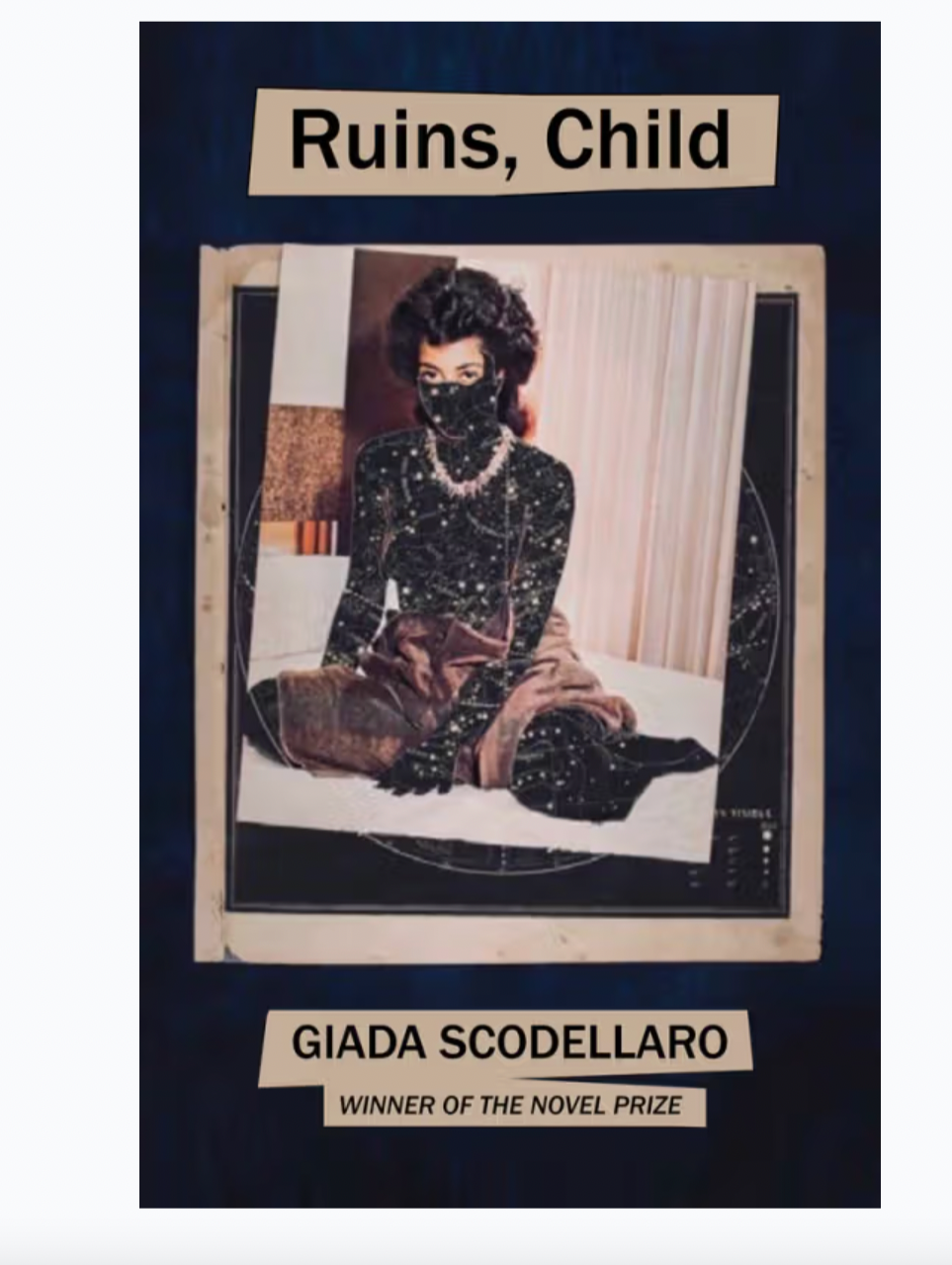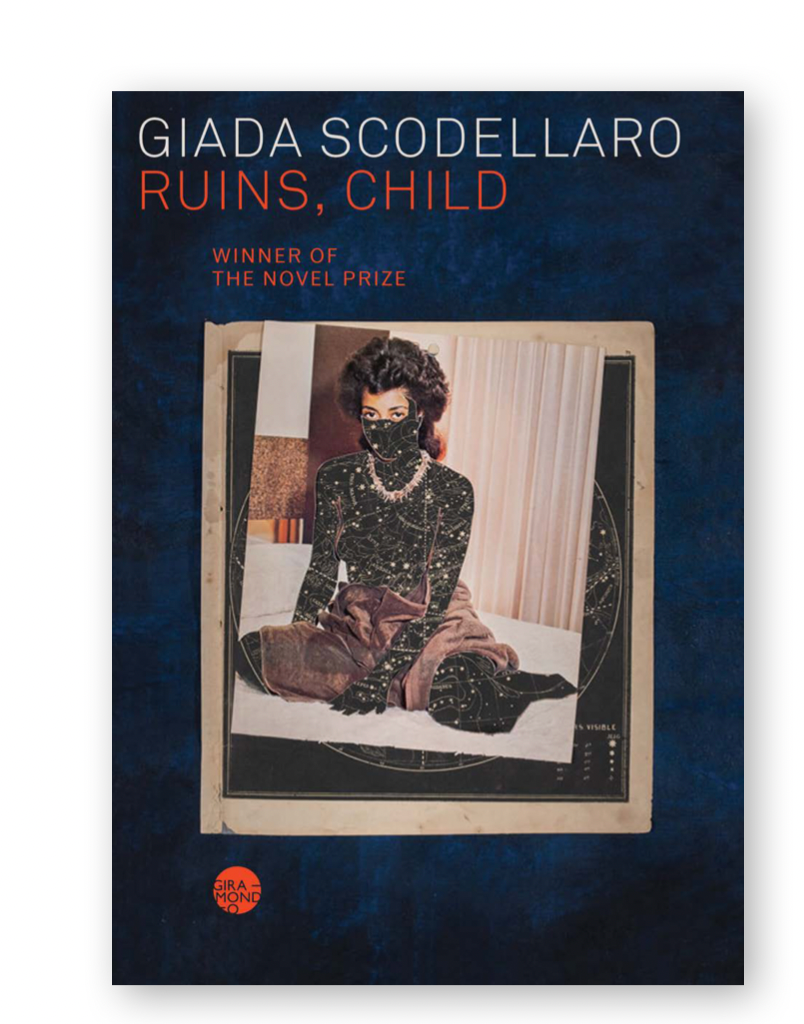“RUINS,CHILD IS CONCEPTUALLY RICH, PRISMATIC, AND CHORAL, EMBODIED, AND SURREAL, CINEMATIC AND TEXTUAL. IN THIS WORK OF FRACTAL SEEING, WE ENCOUNTER WOMEN IN LIVES THAT ARE SIMULTANEOUSLY LIVED, REENACTED, AND OBSERVED. SCODELLARO WRITES US BLACK LIFE WATCHING BLACK LIFE.”
—DIONNE BRAND
WINNER OF THE 2024 NOVEL PRIZE
Remarkable for its irresistible sweep, wit, and prickly splintered truth, Ruins, Child is a kaleidoscopic work, pointedly disorienting in its looseness, and powered along by snatches of speech from its compelling ensemble cast, often vernacular, often overheard: “The woman is old, I hear children saying, not in the way we consider all adults to be old, but really old, ancient, she is endless”.
Seemingly drawn from deep wells of Black American reality, Scodellaro’s female protagonists push against authority in the very vivacity of their telling. “Looseness, that is the thing people fear in a person (in women) and in objects.” A surreal musing, Ruins, Child uses the lens of urban infrastructure, social commentary, folklore, choreography and collective listening to create an ethnography of place and an ode to communal ruins.
Forthcoming from New Directions (US), Fitzcarraldo Editions (UK), and Giramondo (AU).
AVAILABLE APRIL 7, 2026
“Giada Scodellaro's newest masterpiece, Ruins, Child, endows the concept and form of the contemporary novel with new force and meaning. Cinematic and prismatic, like a camera constantly in motion and yet incisive in its close portraitures of a community of Black women and fems surviving and living amidst the future urban, eco-dystopic, queer ruins of our society, Scodellaro’s novel breaks new ground in spectacular fashion.”
—John Keene
“Ruins, Child takes us to the crumbling architecture of a future past; a future past that is possibly now. In this work of fractal seeing, we encounter women in lives that are simultaneously lived, reenacted, and observed. Ruins, Child is conceptually rich, prismatic, and choral, embodied, and surreal, cinematic and textual. Giada Scodellaro writes us Black life watching Black life.”
—Dionne Brand
“Giada Scodellaro is one of the most astonishing writers of her generation and Ruins, Child is a visionary novel. Scodellaro refracts and redefines the canon of Black culture, the archive of Black experience. The result is a masterpiece that lives and breathes on the page, every sentence shimmering with wit, musicality, brilliance and verve.”
—Katie Kitamura
“Ruins, Child reads like wild and textured wind, like seeds dispersed, like focus pulled then blossomed outwards, like bodies leaking, thumping, persisting, cleaving: together, then apart. This is a book of breath and people, of the precious metrics of language with all its lakes and tales that flows between and towards women. Giada Scodellaro has written fierce magic, wet earth, hot limbs; it is urgent and beautiful.”
—Helen Marten
“Scodellaro’s brilliant prose breathes strangely. She captures and conjures a world and a set of characters so unlike anything I’ve ever encountered before, and there’s a quiet terror furring beneath the story.”
—Mona Arshi
“Mesmerizing and challenging…a hybrid of fiction, essay, and verse intimate in scale yet sociopolitically resonant: An arresting work by a writer unbound by constraints of the expected.”
“Scodellaro’s new book both dissolves formal definitions and grants them new permissions: the novel here becomes film, poem and score. Writing in our ruinous present, Scodellaro encloses her text in the archive, with extensive endnotes citing the Black canon from which her material constellated.”
“A gorgeous work of collective witness set against an urban landscape. Conjuring the spirit of Gloria Naylor’s The Women of Brewster Place and Virginia Woolf’s The Waves, Ruins, Child weaves folklore, botany and the body—always the body, one chapter entitled “groin,” another, “sole of the foot.” Ruins, Child is a surrealist, cinematic telling with an eye towards the future."
Cover Art: LORNA SIMPSON, Everything (Detail), (2021)


